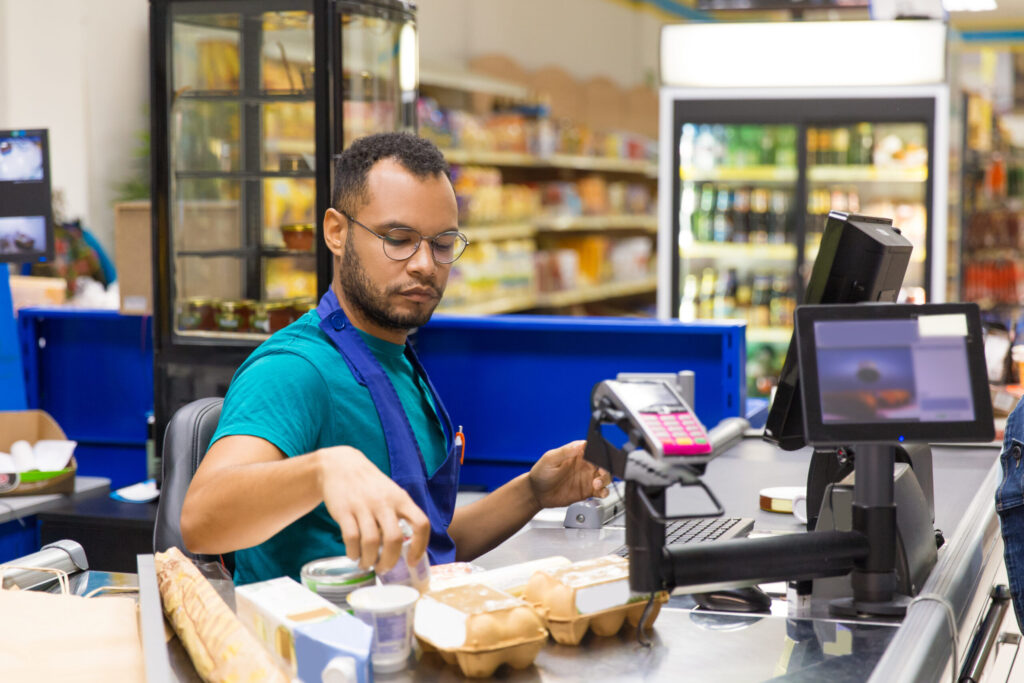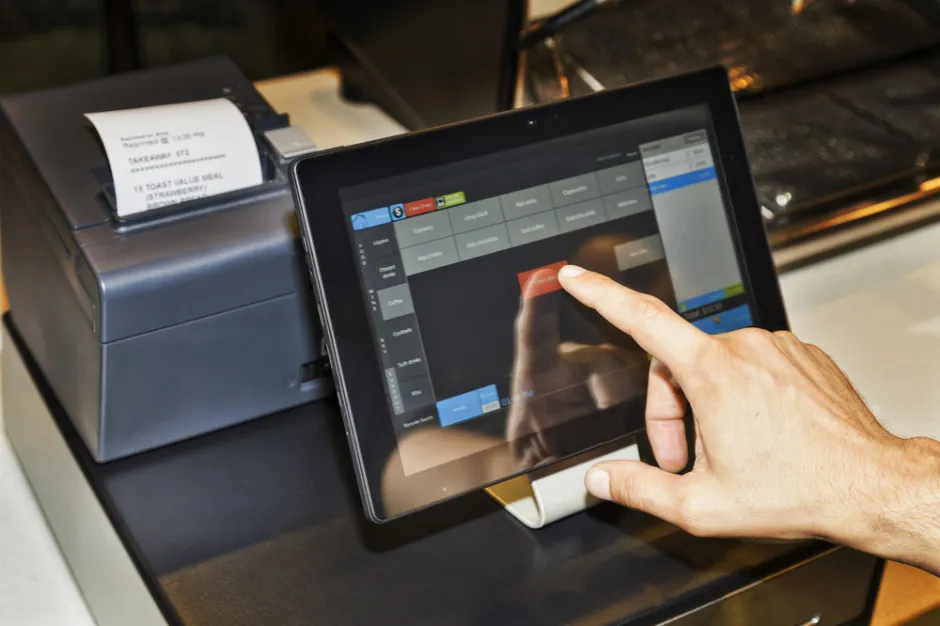Streamlining Supermarket Purchases with POS System Integration

n the fast-paced environment of a supermarket, efficiency is key to maintaining smooth operations, satisfying customers, and ensuring profitability. From managing stock to handling customer transactions, supermarkets face a variety of challenges every day. One of the most effective ways to address these challenges is through POS system integration. A Point of Sale (POS) system, when integrated with other software and systems, can help streamline supermarket purchases, enhance operational efficiency, and reduce costs.
In this blog, we’ll explore how POS system integration can improve supermarket purchasing processes and offer a competitive edge in the retail industry.
1. Simplified Inventory Management
Inventory management is a crucial part of any supermarket, as it directly affects the availability of products and the cost of restocking. By integrating your POS system with inventory management software, you can automate many aspects of your purchasing process, making it easier to track stock levels in real time.
When a product is sold, the POS system automatically updates the inventory count, providing accurate, up-to-date information. If an item reaches a low threshold, the system can trigger an automatic reorder or alert your purchasing department to restock before it runs out. This integration eliminates manual stock tracking, reduces human error, and helps prevent stockouts or overstocking, which can tie up capital in unsold goods.
Moreover, integrated POS systems can provide data analytics that helps identify purchasing trends, so you can better forecast demand. For example, if a particular product is moving quickly during a holiday season, the system can prompt you to adjust your orders accordingly, ensuring that you are always prepared to meet customer needs.
2. Streamlined Ordering Process
With POS system integration, your supermarket’s ordering process becomes far more efficient. When the inventory levels of certain products drop to a predefined threshold, the POS system can automatically generate purchase orders (POs) to suppliers. This reduces the time spent manually generating and sending orders, allowing staff to focus on other tasks.
POS systems can also track past orders and supplier performance, helping you optimize future purchases. For example, if a certain supplier frequently delivers late or provides lower-quality products, you can choose to work with a more reliable vendor. You can even negotiate better pricing or discounts based on purchasing history, helping you save money on bulk orders.
This level of integration makes the ordering process less time-consuming and reduces the risk of human errors that could result in incorrect orders or delays in stock replenishment. The ability to quickly reorder products also ensures that your supermarket can maintain optimal stock levels without interruption.
3. Real-Time Sales Data for Smarter Purchasing Decisions
A key benefit of POS system integration is the ability to access real-time sales data that directly informs purchasing decisions. By analyzing this data, supermarket managers can understand which products are selling well and which are not, allowing for more informed purchasing decisions.
For instance, if you notice that a particular product is rapidly selling out, the POS system will provide instant sales reports, allowing you to reorder more stock quickly to avoid running out. Similarly, if a product isn’t moving as expected, you may decide to adjust the order quantities or run a promotion to boost sales, ultimately reducing excess inventory and avoiding waste.
With integrated POS systems, you can track sales trends by time of day, week, or season, giving you a better understanding of customer preferences and shopping habits. This data-driven approach enables you to purchase products that have a higher likelihood of selling quickly, improving your cash flow and reducing the need for deep markdowns or clearance sales.
4. Faster and More Accurate Supplier Invoicing
When it comes to supplier invoicing, POS system integration can eliminate a lot of the manual data entry that leads to errors or discrepancies. Once products are scanned into the POS system and sold to customers, the system automatically updates the inventory and generates accurate invoices for suppliers based on the quantities delivered.
This integration means that supermarket staff no longer need to manually cross-check orders with invoices. The system ensures that the products received are accurately reflected in the invoices, reducing the risk of overpayments or underpayments. It also enables quicker payment processing, as automated invoicing can save time for both the purchasing department and your accounting team.
Additionally, POS systems that integrate with accounting software allow for seamless data flow between sales, purchases, and financial records. This reduces the time spent reconciling invoices and financial reports, making the accounting process faster and more accurate.
5. Enhanced Customer Experience and Increased Efficiency
POS system integration does more than just streamline back-end processes – it directly benefits the customer experience as well. By ensuring that your supermarket’s inventory is accurately tracked and orders are placed efficiently, customers are more likely to find the products they want in stock. This can reduce frustration and build customer loyalty, particularly when it comes to popular or frequently purchased items.
Moreover, an integrated POS system allows for smoother checkout processes. Customers can quickly pay for their items with various payment methods, including credit cards, mobile wallets, or even loyalty points, all thanks to the seamless connection between the POS system and your payment processor.
Fast checkout, combined with up-to-date product availability, not only improves customer satisfaction but also increases efficiency in store operations. When employees spend less time managing stock and dealing with purchase orders, they can focus more on delivering excellent customer service, creating a better shopping experience for everyone.
Conclusion
Streamlining supermarket purchases with POS system integration is a game-changer for both operational efficiency and customer satisfaction. By automating inventory management, simplifying the ordering process, providing real-time sales insights, and improving invoicing accuracy, POS systems can help supermarkets reduce waste, lower costs, and optimize stock levels. The result is a smoother, more efficient operation that ultimately improves the bottom line.
As the retail industry continues to evolve, supermarkets that leverage integrated POS technology will be better positioned to handle the demands of modern consumers, remain competitive, and grow their businesses. Whether you’re looking to reduce manual tasks, increase purchasing accuracy, or simply improve your customer experience, POS system integration offers a comprehensive solution for achieving these goals.






